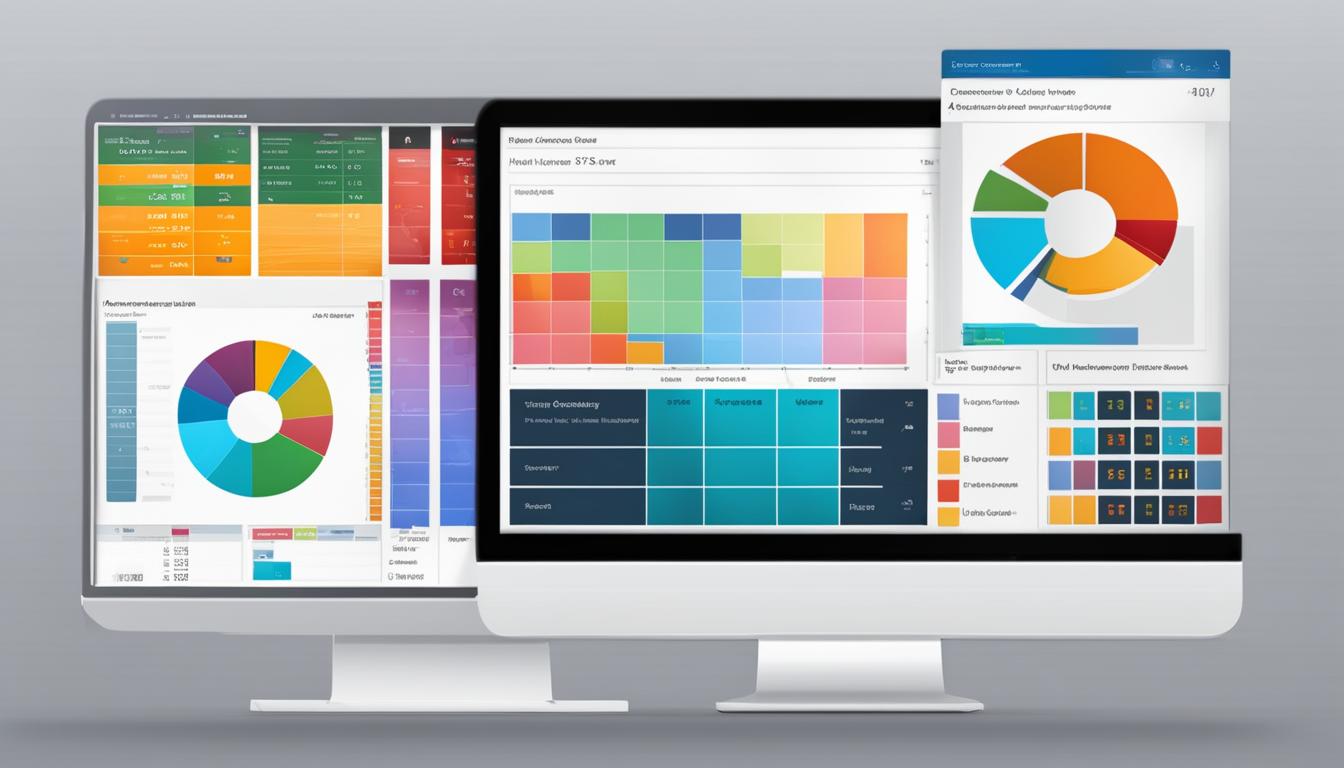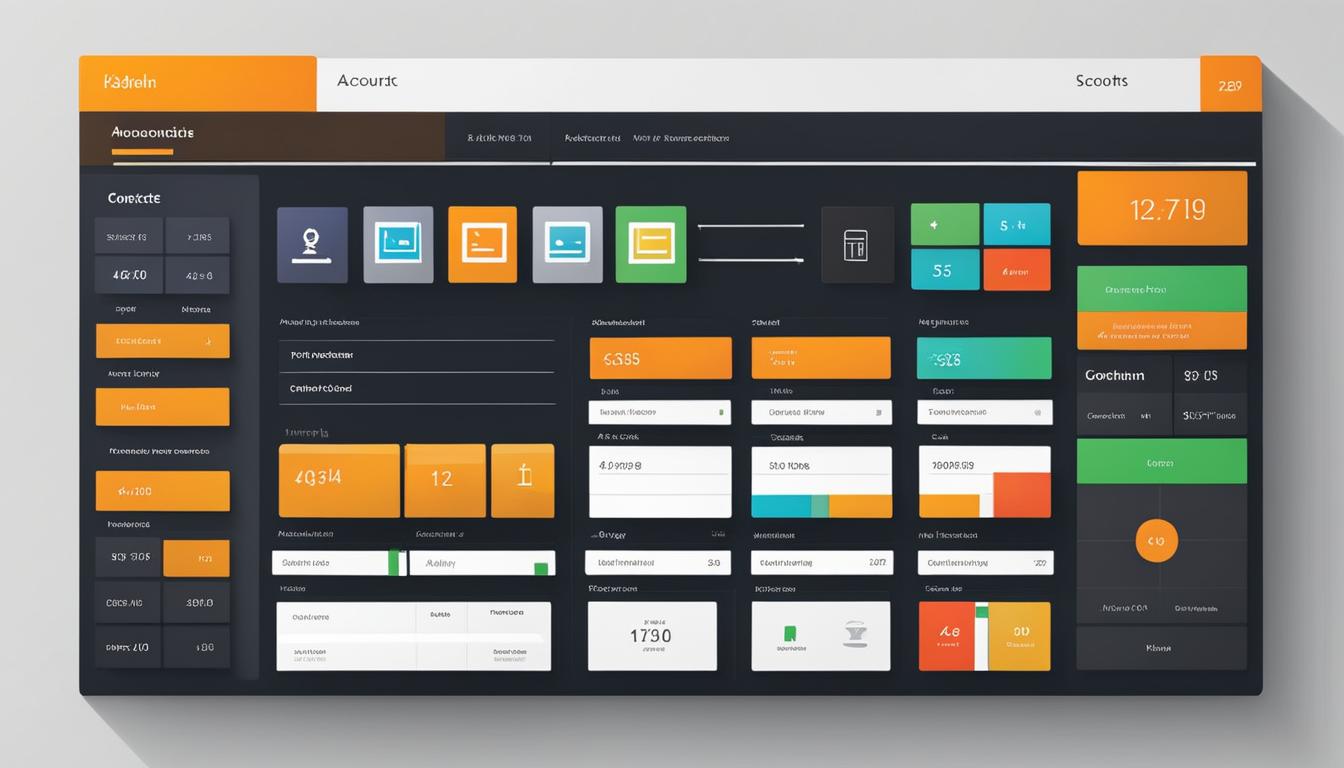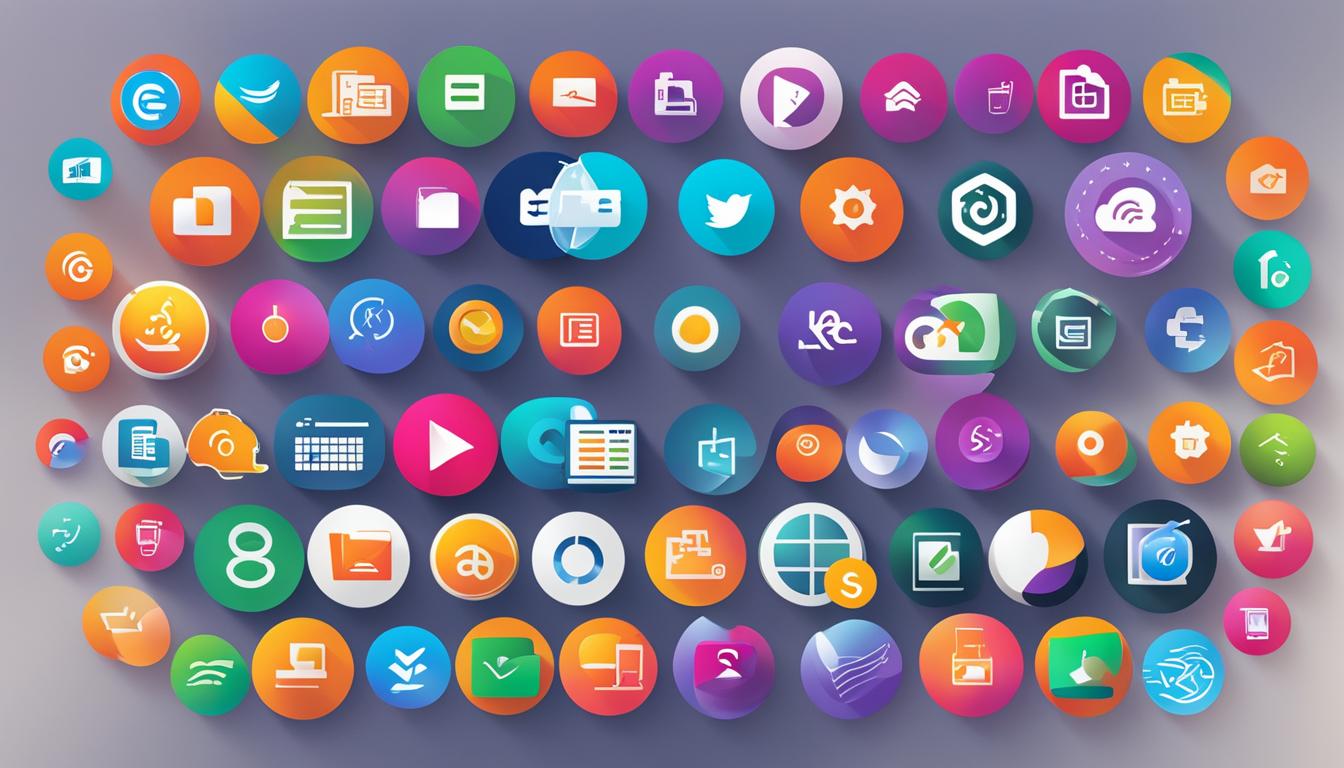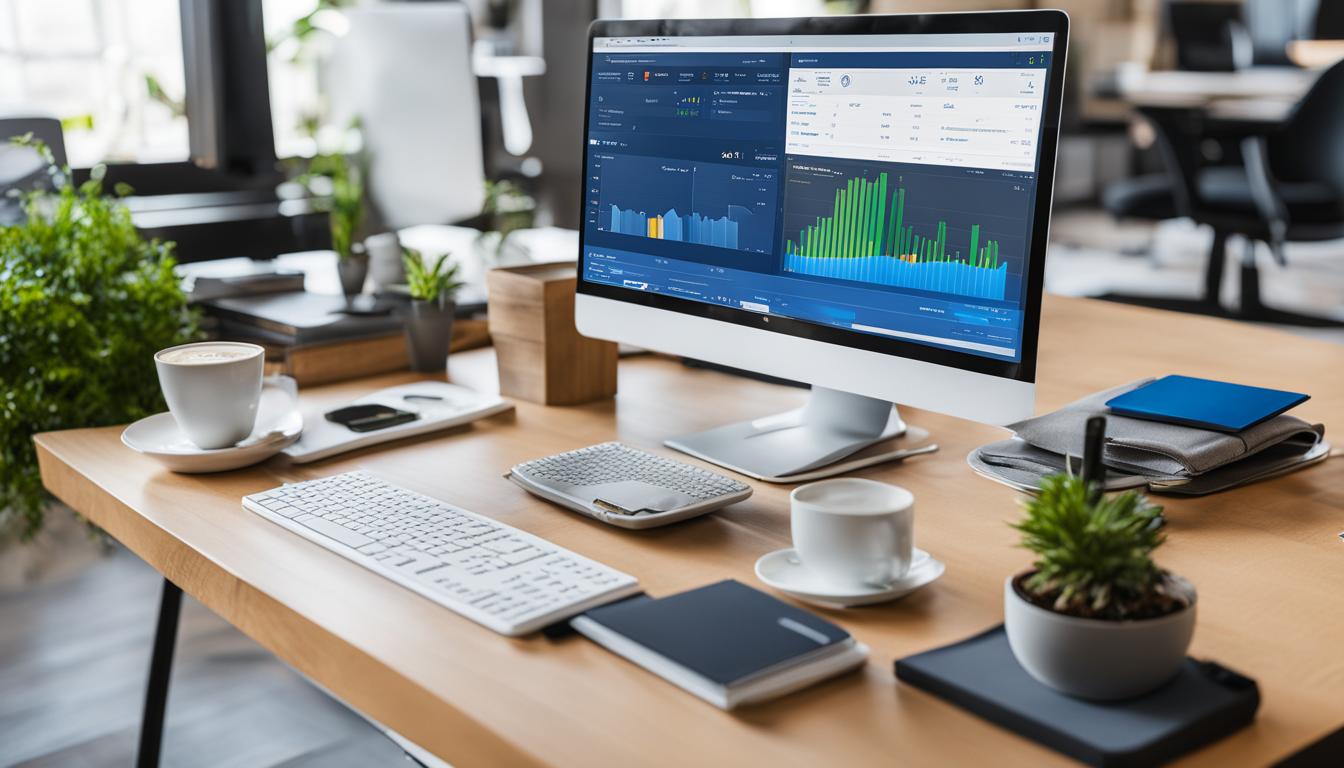Accountants
The Best Accounting Software Packages That You Need to Know
When it comes to managing the finances of your small business, having the right accounting software is essential. With the right tools in place, you can streamline your financial management processes, track income and expenses, generate reports, and gain valuable insights. But with so many options available, how do you choose the best accounting software package for your business?
At our company, we’ve done the research for you and compiled a list of the best accounting software packages that you need to know. We’ve taken into account factors such as ease of use, functionality, and price to help you find the perfect software for your small business.
Key Takeaways:
- Choosing the right accounting software is crucial for effective financial management.
- We have evaluated and selected the best accounting software packages based on their ease of use, functionality, and price.
- Our list includes software options suitable for businesses of all sizes and industries.
- Consider factors such as user-friendliness, features, and customer support when making your decision.
- Take advantage of free trials or demos to test the software before committing to a purchase.
What Do Small Business Accounting Services Do?
Small business accounting services play a crucial role in streamlining financial management for businesses. At [Company Name], we offer comprehensive small business accounting services that provide valuable information to help you answer critical questions about your finances.
Our range of services includes:
- Tracking incoming revenue: We help you keep a close eye on your cash flow by monitoring and recording all incoming funds.
- Expense management: We assist you in managing your expenses efficiently by categorizing and tracking them.
- Insights through detailed reports: Our reports offer valuable insights into your financial performance, helping you make informed business decisions.
- Mobile apps and website access: Our accounting services are accessible anytime, anywhere through user-friendly mobile apps and websites, ensuring that you always have access to your accounting data.
With our small business accounting services, you can focus on growing your business while we take care of the financial aspects. We understand the importance of accurate and up-to-date financial information in making strategic decisions, and our services are designed to provide you with the necessary tools to achieve financial success.
Partnering with us for your financial management needs ensures that your bookkeeping is accurate, organized, and efficient, leaving you with more time to devote to what you do best. Whether you’re a startup or an established small business, our accounting services are tailored to meet your specific needs and help you achieve your financial goals.
How Do You Set Up Accounting Software?
Setting up accounting software for a small business is a crucial step in efficient financial management. The process may vary in duration, ranging from as short as five minutes to several hours, depending on the complexity of the business and the chosen accounting service.
To successfully set up accounting software, follow these important steps:
- Create an account: Begin by creating an account with the chosen accounting service. This typically involves providing basic information about your business, such as the business name, contact details, and industry.
- Answer setup questions: Once the account is created, the software may prompt you to answer a series of setup questions. These questions help customize the software according to your specific business requirements.
- Import financial transactions: To ensure accurate financial records, consider importing existing financial transactions into the accounting software. Most accounting services provide the option to import transaction data from bank statements or existing files.
- Set up payment processors: If your business accepts online payments, it is essential to set up payment processors within the accounting software. This allows for seamless integration between customer invoices and payment systems.
- Configure specific features: Accounting software offers a range of features to meet different business needs. Take the time to configure specific features such as purchase orders, inventory tracking, and payroll management, depending on the requirements of your business.
By diligently following these steps, you can successfully set up accounting software for your small business, enabling efficient financial management and accurate record-keeping.

With Wave, TrulySmall Accounting, and FreshBooks, you don’t need to be an accounting expert to keep your financial records in order. Their user-friendly interfaces and simplified workflows make managing your finances a breeze.
| Accounting Software | Features | User-Friendly Interface |
|---|---|---|
| Wave | Core accounting features, invoicing, expense tracking | Intuitive and easy to navigate |
| TrulySmall Accounting | Streamlined workflows, simplified terminology | Clean and user-friendly |
| FreshBooks | Invoicing, expense tracking, payment processing | Simple and straightforward |
Choose the accounting software that fits your business needs and enjoy the simplicity and ease of use they offer.
Creating Accounting Records for Contacts and Products
Small business accounting software allows us to create detailed accounting records for our customers, vendors, and products. These records include essential information such as contact details, purchase history, and other relevant data. By utilizing accounting software, we eliminate the need for manual data entry and gain quick access to customer information during transactions, improving efficiency and accuracy.
Within the accounting software, we have the ability to create invoices, statements, and track billable expenses within the customer records. This streamlined process ensures that all financial transactions and records are organized and easily accessible, saving us valuable time and effort.

With the creation of comprehensive accounting records, we can effectively manage our customer and vendor relationships. These records allow us to track purchase history, monitor outstanding invoices, and stay on top of payment schedules. By maintaining updated and accurate customer and vendor information, we can build strong and lasting partnerships with our business contacts.
Which Transactions Do Accounting Services Support?
Small business accounting services offer comprehensive support for various types of accounting transactions, ensuring efficient financial management. These services cater to the diverse needs of businesses and assist in maintaining accurate and up-to-date financial records. The most common types of transactions supported by accounting services include:
- Invoices: Accounting services help businesses generate professional invoices for their products or services. These invoices can be customized with company branding and include details such as item description, quantity, price, and total amount due. By automating the invoicing process, businesses can streamline their revenue generation and track outstanding payments.
- Bills: Accounting services facilitate the creation and management of bills, allowing businesses to accurately track their expenses. Businesses can record details such as vendor name, due dates, payment terms, and amounts owed. These services enable easy bill payments and help businesses stay organized.
- Purchase Orders: Some accounting services provide functionality for creating purchase orders, which are used to request goods or services from vendors. Businesses can input product details, quantities, and preferred delivery dates. Purchase orders enable better control over procurement processes and ensure timely order fulfillment.
- Sales Receipts: Accounting services allow businesses to generate sales receipts for completed transactions. These receipts provide proof of purchase for customers and help businesses maintain accurate sales records. By automating the generation of sales receipts, businesses can improve efficiency and enhance customer satisfaction.
- Credit Notes: In cases where refunds or adjustments are necessary, accounting services support the creation of credit notes. These notes document the amount credited back to a customer’s account and the reason for the credit. Credit notes help maintain transparent financial records and ensure accurate billing.
- Statements: Accounting services offer the ability to generate financial statements, such as profit and loss statements and balance sheets. These statements provide a comprehensive overview of a business’s financial performance and assist in decision-making. They can be customized to reflect specific reporting periods or specific accounts.

Accounting services provide templates and user-friendly interfaces that make it easy for businesses to create and manage these transactions. By leveraging these services, businesses can streamline their financial activities and focus on core operations.
How Are Completed Transactions Handled?
Once a transaction, such as an invoice, is completed in accounting software, there are several options for handling it. These include saving it as a draft or final version, printing or emailing it to the customer, and recording payments on the invoice. Some accounting software allows for PDF versions of invoices, recurring payments, and payment reminders. The goal is to efficiently manage completed transactions and ensure timely payments.
One common way to handle completed transactions is by saving them as final versions. This indicates that the transaction is complete and ready for further processing. Saving the transaction as a final version serves as a reference for future record-keeping purposes.
Printing or emailing the completed transaction to the customer is another important step. This allows for proper documentation and communication. The customer receives a copy of the invoice as proof of the transaction and for their records. Emailing invoices also ensures efficient delivery and minimizes paper waste.
Recording payments on the invoice is a crucial step in the handling of completed transactions. It helps keep track of outstanding balances and provides a clear record of payments made. Accounting software typically allows for easy payment recording, whether it’s done manually or integrated with payment gateways.
Additionally, some accounting software offers features such as PDF versions of invoices, recurring payments, and payment reminders. PDF versions of invoices provide a professional and convenient way to share transaction details, while recurring payments and payment reminders help automate the payment process and ensure timely collection of funds.

|
Efficiently managing completed transactions and ensuring timely payments is vital for small businesses. |
Can You Manage Expenses and Bills With Accounting Software?
Small business accounting software provides an array of features that enable efficient management of expenses and bills. By utilizing this software, you can streamline your financial processes and gain better control over your business’s financial performance. Let’s explore the key capabilities offered by small business accounting software when it comes to managing expenses and bills.
Categorizing and Comparing Expenses
One of the essential features of accounting software is the ability to categorize expenses. With categorized expenses, you can gain a clear understanding of how your business is allocating resources across different expenditure categories. This categorization helps you identify areas where you might be overspending or where you can potentially cut costs.
Additionally, small business accounting software allows you to compare your expenses with your income. By analyzing this comparison, you can assess your financial health and make informed decisions about budgeting and allocating funds.
Generating Reports
Accounting software empowers you to generate comprehensive reports that provide vital insights into your business’s financial status. These reports can include detailed breakdowns of your expenses and bills, enabling you to identify trends, patterns, and potential areas for improvement. Utilizing these reports, you can make data-driven decisions to optimize your business’s financial performance.
Expense Receipt Capture
Many small business accounting software packages offer the convenience of capturing and uploading expense receipts using mobile apps. This feature eliminates the need for manual tracking of paper receipts and ensures that all expenses are accurately recorded. By leveraging optical character recognition (OCR) technology, the software can extract and categorize data from receipts, simplifying the expense tracking process.
Benefits of Managing Expenses and Bills With Accounting Software
Managing expenses and bills with accounting software offers several advantages for small businesses, including:
- Efficiency: Automating expense tracking and bill management processes saves time and eliminates manual data entry.
- Accuracy: By reducing the risk of human error, accounting software ensures accurate financial records.
- Visibility: Clear and organized expense and bill data offers real-time visibility into your business’s financial performance.
- Cost control: Analyzing expenses and bills helps you identify cost-saving opportunities and manage your budget effectively.
In conclusion, small business accounting software provides robust features for managing expenses and bills, allowing you to streamline processes, make informed financial decisions, and maintain control over your business’s financial health.
Why You Should Import Transactions and Bank Balances
Importing transactions and bank balances into accounting software is crucial for maintaining accurate and up-to-date financial records. By connecting your financial accounts to the accounting tool, you gain the ability to easily reconcile bank transactions and monitor your balances. This feature eliminates the need for manual data entry and significantly reduces the risk of errors, ensuring the integrity of your financial data.
With the import feature, you can streamline the reconciliation process by automatically matching transactions from your bank statement with the corresponding entries in your accounting software. This helps identify any discrepancies or missing transactions, allowing you to maintain an accurate and complete record of your financial activities.
Importing transactions and bank balances also provides you with real-time visibility into your cash flow and financial health. By staying up-to-date and having a clear overview of your transactions, you can make informed business decisions based on accurate and reliable financial information.
Not only does importing transactions save you time and reduce the risk of errors, but it also enables you to generate insightful reports and financial statements with ease. With all your financial data in one place, you can analyze your business’s performance, identify trends, and make data-driven decisions to drive growth and profitability.

When it comes to managing your small business finances, having the right accounting software can make a world of difference. With the ever-changing landscape of accounting technology, it can be overwhelming to choose the best option for your business. That’s why we’ve done the research for you and compiled a list of the top accounting software packages available in Australia.
Key Takeaways:
- The right accounting software can streamline your financial management and help you stay organized.
- Consider factors such as pricing, features, and user-friendliness when evaluating different software packages.
- MYOB, FreshBooks, and Xero are among the top choices for small businesses in Australia.
- Each software package offers unique benefits and features, so it’s important to choose one that aligns with your specific needs.
- Don’t underestimate the importance of excellent customer support when selecting an accounting software package.
Best Overall Accounting Software: MYOB
In Australia, when it comes to accounting software for small businesses, MYOB stands out as the best overall choice. Its comprehensive features and user-friendly interface make it a top pick for businesses of all sizes.
MYOB offers convenient solutions for various accounting tasks, including generating BAS reports, managing inventory, handling accounts payable, and monitoring cash flow. With its robust capabilities, MYOB streamlines financial processes and helps businesses stay on top of their finances.
One of the key advantages of MYOB is its flexibility. It provides different product tiers that cater to businesses with varying needs and sizes. Whether you’re a sole trader or a small to midsize business, MYOB has the right solution for you.
Another notable feature of MYOB is its support for multiple currencies. If your business operates internationally or deals with foreign transactions, MYOB can handle the complexities of managing different currencies.
With its user-friendly interface, MYOB makes accounting tasks intuitive and straightforward. You don’t need to be an accounting expert to navigate the software effectively. MYOB simplifies the process, allowing you to focus on growing your business instead of getting lost in complicated accounting procedures.

Discover why FreshBooks is the top choice for freelancers seeking efficient accounting software. Streamline your invoicing, track your expenses, and take control of your financial management with FreshBooks.
Second-Best Accounting Software in Australia: Xero
Xero is an internationally renowned accounting software and is highly regarded in Australia. It offers a range of features, including invoicing, bank reconciliation, expense tracking, and financial reporting. While it may not have the advanced features of an all-in-one ERP suite, Xero provides a simple and intuitive solution for small businesses. It also integrates well with other business tools and offers excellent customer support.
Key Features of Xero Accounting Software:
- Invoicing: Create professional invoices and send them to clients directly from the software.
- Bank Reconciliation: Automatically import bank transactions and reconcile them with ease.
- Expense Tracking: Keep track of business expenses and categorize them for accurate reporting.
- Financial Reporting: Generate detailed reports to gain insights into your business’s financial health.
- Integration: Seamlessly integrate with other business tools, such as CRM systems and payroll software.
- Customer Support: Enjoy reliable customer support to assist you with any questions or issues.
With its user-friendly interface and comprehensive feature set, Xero is a highly recommended choice for small businesses in Australia. It allows you to streamline your accounting processes, save time, and gain better control over your financials.
| Pros | Cons |
|---|---|
| Easy to use and navigate | Lacks certain advanced features found in larger ERP systems |
| Robust invoicing capabilities | May require additional integrations for specific business needs |
| Seamless bank reconciliation | Higher pricing tiers may be costly for smaller businesses |
| Extensive ecosystem of integrations | Lack of offline access without an internet connection |
Conclusion
In conclusion, choosing the right accounting software package for your small business is crucial for effective financial management. The availability of numerous accounting software packages gives you the flexibility to select the one that aligns with your specific needs and preferences. However, when evaluating different options, it is essential to consider factors such as ease of use, pricing, features, and customer support.
Australia offers a wide range of small business accounting solutions, but three stand out as the top choices: MYOB, FreshBooks, and Xero. Each of these accounting software packages offers unique benefits and features that cater to different business requirements.
MYOB is widely regarded as the best overall accounting software in Australia, offering comprehensive solutions for various business tasks such as BAS reports, inventory management, accounts payable, and cash flow management. For freelancers and small businesses, FreshBooks provides an intuitive user interface and cloud-based solutions for invoicing, expense tracking, and online payments. On the other hand, Xero is highly regarded for its simplicity, integration capabilities, and excellent customer support.
Ultimately, the decision of the accounting software package that best suits your small business should be based on careful consideration of your unique needs and preferences. By choosing the right software, you can streamline your financial management processes, improve efficiency, and make informed business decisions.
FAQ
What do small business accounting services do?
Small business accounting services streamline financial management by providing information that helps business owners answer critical questions about their finances. These services can help track incoming revenue, manage expenses, create insights through detailed reports, and provide access to accounting data from anywhere through mobile apps and websites.
How do you set up accounting software?
Setting up accounting software for a small business can take anywhere from five minutes to several hours, depending on the complexity of the business and the chosen accounting service. The process involves creating an account, answering setup questions, importing financial transactions, setting up payment processors, and configuring specific features like purchase orders and inventory tracking. Most accounting services also allow for data import from existing files.
What’s the best free accounting app for small businesses?
Wave and Zoho Books are considered the best free accounting software options for small businesses. Wave offers core accounting features for free, with additional charges for scanning receipts. Zoho Books has a surprisingly robust free version with features like client management, invoicing, and reports. Both options are suitable for freelancers and small businesses, providing essential accounting functions at no cost.
Which accounting software is easiest to use?
Wave, TrulySmall Accounting, and FreshBooks are the easiest accounting software programs to use. They offer intuitive dashboards, simplified terminology, and user-friendly interfaces. These accounting programs prioritize simplicity and ease of use, making them ideal for small businesses without extensive accounting knowledge.
How do you create accounting records for contacts and products?
Small business accounting software allows for the creation of detailed accounting records for customers, vendors, and products. These records include contact information, purchase history, and other relevant details. The software eliminates the need for manual data entry and provides quick access to customer information during transactions. It also supports the creation of invoices, statements, and billable expenses within the customer records.
Which transactions do accounting services support?
Small business accounting services support a wide range of transactions, with invoices and bills being the most common. Some accounting services go beyond basic transactions and offer features like purchase orders, sales receipts, credit notes, and statements. These services provide templates and customizable options for creating different types of transactions, making it easy to manage financial activities.
How are completed transactions handled?
Once a transaction, such as an invoice, is completed in accounting software, there are several options for handling it. These include saving it as a draft or final version, printing or emailing it to the customer, and recording payments on the invoice. Some accounting software allows for PDF versions of invoices, recurring payments, and payment reminders. The goal is to efficiently manage completed transactions and ensure timely payments.
Can you manage expenses and bills with accounting software?
Small business accounting software provides features for managing expenses and bills. This includes categorizing expenses, comparing them to income, and generating reports. Some software allows for the capture and upload of expense receipts using mobile apps. Optical character recognition technology can extract data from receipts for easy expense tracking. These features help businesses keep their expenses under control and monitor financial performance.
Why should you import transactions and bank balances?
Importing transactions and bank balances into accounting software is essential for accurate and up-to-date financial records. By connecting financial accounts to the accounting tool, businesses can easily reconcile bank transactions and monitor balances. This feature eliminates the need for manual data entry and reduces the risk of errors. It also provides real-time visibility into cash flow and financial health.

